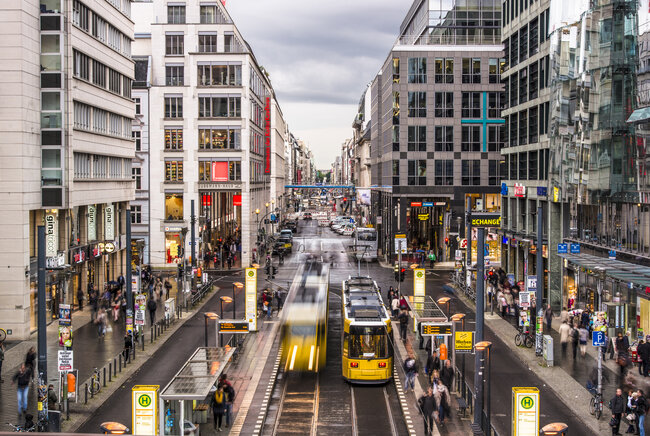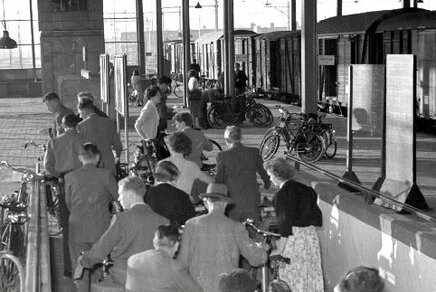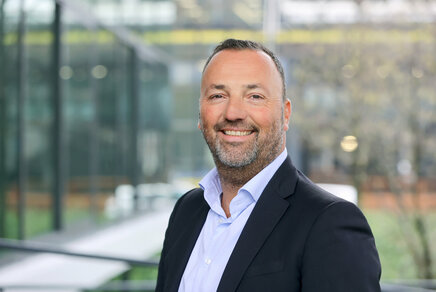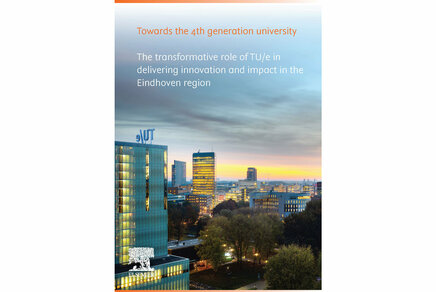Major NWO grants for five research consortia involving TU/e
A total of 9 consortia are granted nearly 40 million euros within NWO's Perspectief program

The Dutch Research Council (NWO) has awarded a total of nearly 40 million euros to 9 consortia of researchers, companies, governments and civil society organizations. TU Eindhoven is involved in 5 of the 9 consortia. The so-called Perspectief programs will work on more effective cancer treatments, improving optical characteristics of high-tech equipment and smarter forms of mobility in cities, among other things.
Perspectief is an NWO research program funded by the Ministry of Economic Affairs and Climate (EZK) that focuses on technological innovations around societal challenges. The program challenges researchers to form consortia with industry, governments and civil society organizations.
The consortia TU/e is involved in are the following:
Conserving the breast by heating the tumour
For almost 1 in 3 women with breast cancer, chemotherapy is necessary to shrink the tumour to enable breastconserving surgery. If shrinking fails, the complete breast will have to be amputated.
The goal of the CARES programme is to have the chemotherapeutics encapsulated within tiny heat sensitive balls of fat. They also develop a magnetic resonance system to heat the tumour with high accuracy. In combination, these two approaches will ensure that the administered chemotherapeutics will mainly be released within the tumour itself. This leads to high drug concentrations and potentially more successful tumor reduction, resulting in fewer mastectomies.
Consortium
Programme leader: Dr. Sergio Curto (ErasmusMC)
Knowledge institutes: Amsterdam UMC, Eindhoven University of Technology, ErasmusMC, Heinrich Heine Düsseldorf, Kantonsspital Aarau – Kantonsspital Baden, Ludwig Maximilians University, UMC Utrecht, Universitätsklinikum Erlangen
Companies: General Electric Healthcare, Lipoid, Philips, Sensius BV, Thermosome, Zurich MedTech Other social partners: Borstkanker Onderzoek Groep, Catharina Ziekenhuis Eindhoven, Fontys, Gasthuiszusters Antwerpen, Iridium Network, Inholland, Swiss Hyperthermia Network
Leading by light conduction
The newest generation of optical sensors and light sources must be able to conduct many colours of light from source to destination. The OPTIC programme develops innovative optical components, such as lenses and mirrors of arbitrary shape, as well as new methods for modifying the shape of light waves.
This technology allows the researchers and collaborating companies to increase the energy efficiency of semiconductor chips (by improving their fabrication accuracy), to increase the light yield of white LED lamps, and to develop highly sensitive satellite sensors that, for example, can help agricultural companies and other companies to determine nitrogen emissions with higher precision.
Consortium
Programme leader: Prof. dr. Willem Vos (Universitity of Twente)
Knowledge institutes: ARCNL, TU Delft, Eindhoven University of Technology, Universitity of Twente, VU Amsterdam
Companies: Addoptics, Anteryon, ASML, Demcon, JMO, Lumileds, Signify, TNO
Selecting the optimal cancer treatment with artificial intelligence
Each year, more people are being diagnosed with cancer. They will often receive a standardized medical treatment that disregards the patient’s expectations about their quality of life during and after treatment.
The PersOn programme uses artificial intelligence to analyse all data available – of the type of cancer as well as the individual patient – to predict the expected outcome of various treatment options. Using this information, the clinician and the patient will jointly choose the personalised care path that maximises the probability of having the highest quality of life.
Consortium
Programme leader: Dr. Johan Kwisthout (Radboud University)
Knowledge institutes: Amsterdam UMC, Eindhoven University of Technology, Maastricht University, Netherlands Comprehensive Cancer Organisation, Netherlands Cancer Institute-Antoni van Leeuwenhoek, Open Universiteit, Radboud University, Radboudumc, TNO, Utrecht University, VU Amsterdam
Companies: Chipsoft, Connected Care, CZ, Hugin Expert A/S, ICTRecht, Info Support, Maastro Clinic, Machine2Learn, Open Walnoot, Orikami, Privacy Company, Saddle Point Science Europe, We Are Not
Other social partners: Isala Ziekenhuis Zwolle, Nederlandse Federatie van Kankerpatiëntenorganisaties
Sediment as key for resilient water systems
Dredging costs for the nationally important Wadden Sea and Western Scheldt nautical channels are escalating. At the same time, biodiversity in such globally important wetlands is declining. Tidal flats and coastal marshes protect dikes against storms, but they must be able to grow fast enough.
Sediment is the key: where and when will there be sufficient sediment, or a surplus or a deficit? WadSED will take advantage of similarities between the Wadden Sea and Western Scheldt to develop new tools and come up with an innovative approach for future proofed sediment management and policy – protecting our coasts from rising sea levels, a decline in biodiversity and escalating dredging costs.
Consortium
Programme leader: Prof. dr. Maarten G. Kleinhans (Utrecht University)
Knowledge institutes: Deltares, Eindhoven University of Technology, TU Delft, University of Groningen, Utrecht University, Van Hall Larenstein University of Applied Sciences, Wageningen University & Research
Companies: Arcadis, Boskalis, Frisia, Nederlandse Aardolie Maatschappij (NAM), Royal Haskoning-DHV (RHDHV), Waterproof, Witteveen+Bos
Other social partners: Coalitie Wadden Natuurlijk, Delta Programma Wadden, Hoogheemraadschap Hollands Noorderkwartier, Rijkswaterstaat, Staatsbosbeheer, Waterschap Hunze en Aa’s, Waterschap Noorderzijlvest, Wetterskip Fryslân
A sustainable accessible city, without private cars?
With housing density increasing, how can we keep our cities accessible? And how can we ensure that everyone can make use of smart, clean mobility solutions such as shared electric bikes?
XCARCITY develops digital twins of low-car urban areas, based on measured and simulated mobility data of people and goods. The researchers apply these virtual models to test various scenarios and interventions for addressing specific problems in the cities of Almere, Amsterdam, and Rotterdam. The simulations serve as input for the decision-making process of government agencies, regional developers and transport operators when striving for clean, accessible mobility in their cities.
Consortium
Programme leaders: Prof. dr. ir. Bart van Arem (TU Delft), Dr Maaike Snelder (TNO/TU Delft)
Knowledge institutes: AMS Institute, CROW, Eindhoven University of Technology, PBL Netherlands Environmental Assessment Agency, SWOV Institute for Road Safety Research, TNO, TU Delft, Universiteit of Twente
Companies: ABB, BAM, Buck Consultants International, DTV consultants, FSD, Future Mobility Network, Goudappel, Map TM, Mobycon, OpenRemote, Pon, RET, RHDHV, Technolution, VRBase, Witteveen + Bos
Other social partners: Connekt, Fietsersbond, Ministry of Infrastructure & Water Management, MRDH, Municipality of Almere, Municipality of Amsterdam, Municipality of Rotterdam, Rijkswaterstaat, Vervoerregio Amsterdam
Media contact
Latest news


